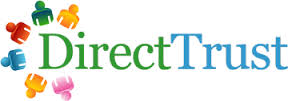personal health information (PHI)
See the following -
Medical Data Security Increasing Concern For ACOs
As more providers adopt accountable care models--and take on the responsibility of facilitating medical data exchange--healthcare leaders are under increasing pressure to protect personal health information (PHI)...
- Login to post comments
Mr Fax goes to Washington D.C.
 Recently, I had the honor of travelling to Washington D.C. to speak on behalf of a substantive and important policy issue, digital cloud fax technology (DCFT) and interoperability in the health care industry. Federal officials are on a mission to create a seamless exchange of personal health information (PHI) and electronic health records (EHR). That's the layman's definition of interoperability. Although I am a layman on Capitol Hill, J2 Global Inc (J2), a provider of eFax Cloud Services remains a champion for DCFT. We are a key player in the field and we used our influence to educate federal officials about an issue that is extremely important to us and to our customers. Specifically, we were there to speak about a proposed rule from the Centers for Medicare & Medicaid Services (CMS).
Recently, I had the honor of travelling to Washington D.C. to speak on behalf of a substantive and important policy issue, digital cloud fax technology (DCFT) and interoperability in the health care industry. Federal officials are on a mission to create a seamless exchange of personal health information (PHI) and electronic health records (EHR). That's the layman's definition of interoperability. Although I am a layman on Capitol Hill, J2 Global Inc (J2), a provider of eFax Cloud Services remains a champion for DCFT. We are a key player in the field and we used our influence to educate federal officials about an issue that is extremely important to us and to our customers. Specifically, we were there to speak about a proposed rule from the Centers for Medicare & Medicaid Services (CMS).
- Login to post comments
Number of DirectTrust Users, Transactions, and Addresses Continue to Grow
 DirectTrust today announced continued steady growth in the number of Direct exchange users, addresses and transactions. The organization also announced the addition of eight new members since the beginning of the year.,,According to end of first quarter 2016 metrics, the number of health care organizations served by DirectTrust health information service providers (HISPs) and engaged in Direct exchange increased 46% to more than 58,000, compared with the same time last year.
DirectTrust today announced continued steady growth in the number of Direct exchange users, addresses and transactions. The organization also announced the addition of eight new members since the beginning of the year.,,According to end of first quarter 2016 metrics, the number of health care organizations served by DirectTrust health information service providers (HISPs) and engaged in Direct exchange increased 46% to more than 58,000, compared with the same time last year.
- Login to post comments
On the Need for a Universal Health Record
 The current path of progress of the EHR, with its concentration on “meaningful use,” and an intellectual property regime that does not fully exploit the capacity for innovation by end-users is approaching an evolutionary dead-end. It is time to treat the EHR as what it should be: an integral part of medical care that has limitless potential for maximizing the use of information acquired in the provision of health care, and not an impediment to optimal care and a bugaboo for the physician. Read More »
The current path of progress of the EHR, with its concentration on “meaningful use,” and an intellectual property regime that does not fully exploit the capacity for innovation by end-users is approaching an evolutionary dead-end. It is time to treat the EHR as what it should be: an integral part of medical care that has limitless potential for maximizing the use of information acquired in the provision of health care, and not an impediment to optimal care and a bugaboo for the physician. Read More »
- Login to post comments
Open Source Health Aims To Change The Course Of Women's Health With An "At-Home" Hormone Sensor
Open Source Health...is pleased to announce the development of an advanced "At- Home" device for measuring hormones through a simple finger-prick blood test. The hormone sensor will be priced around $200.00 and each "one-time use" bio-sensor chip will perform up to 5 tests at a cost of $50.00, providing significant cost savings to the healthcare system. This technology supports the trend whereby point of care is shifting from the clinic to the home.
- Login to post comments
Patient Health Information Precariously Safeguarded, According to Privacy Analytics
According to a new infographic compiled by Ottawa data privacy company Privacy Analytics, costs associated with a data breach, including notification, legal fines, legal fees, forensics, PR, etc., amounts to approximately $208 per person. While data breaches across the board are damaging, from major corporate leaks like Target to member-based services like Ashley Madison, it’s the leaking of personal health information (PHI) that is most sensitive and which Privacy Analytics specializes in...
- Login to post comments
Platform Terminology Explains Why Today's Patient Portals CAN NOT Work (Part 1)
 Patient portals have tremendous potential — but that potential has not been realized and CAN NOT be realized as portals are currently configured. An understanding of platform business models and strategy explains why today’s patient portals are inherently suboptimal. This essay is the first in an occasional series that will look at patient portals through the lenses of platform business models and strategy. Today’s post will introduce and explain platform terminology of multihoming and single homing. Future posts will look more deeply into “why” current patient portals can’t work and will propose options for portals that could work for patients.
Patient portals have tremendous potential — but that potential has not been realized and CAN NOT be realized as portals are currently configured. An understanding of platform business models and strategy explains why today’s patient portals are inherently suboptimal. This essay is the first in an occasional series that will look at patient portals through the lenses of platform business models and strategy. Today’s post will introduce and explain platform terminology of multihoming and single homing. Future posts will look more deeply into “why” current patient portals can’t work and will propose options for portals that could work for patients.
- Login to post comments
Strengthening Protection of Patient Medical Data
Americans seeking medical care expect a certain level of privacy. Indeed, the need for patient privacy is a principle dating back to antiquity, and is codified in U.S. law, most notably the Privacy Rule of the 1996 Health Insurance Portability and Accountability Act (HIPAA), which establishes standards that work toward protecting patient health information. But the world of information is rapidly changing, and in this environment, U.S. rules fall precariously short in protecting our medical data...
- Login to post comments
When Patient Data Lands On Google
A Huntsville, Ala., clinical diagnostics laboratory has notified more than 7,000 individuals of a HIPAA breach after the company discovered protected health information contained on a third-party server had been unsecured for nearly three years...
- Login to post comments